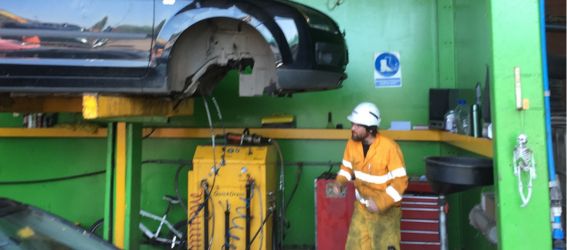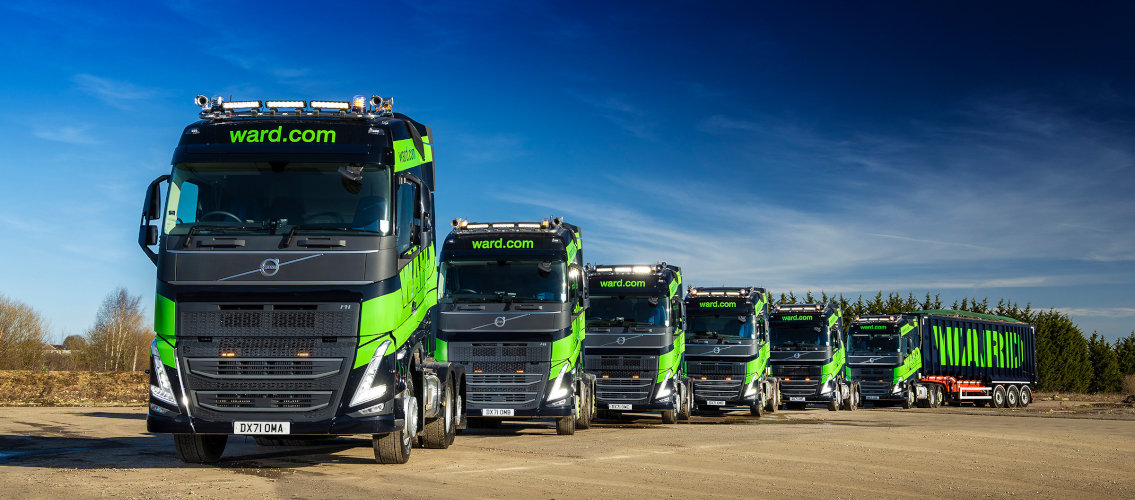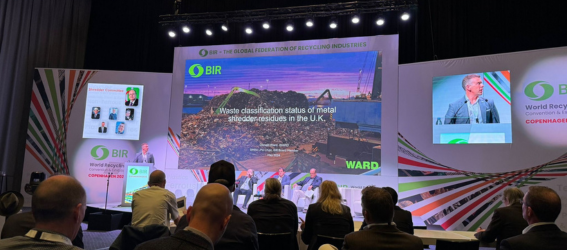Powering Industry
WARD has made a major investment into energy from waste and commissioned a new processing line to produce refuse derived fuel (RDF) and solid recovered fuel (SRF) from the materials collected. The recycling plant includes large industrial shredders and a purpose made building to house all the equipment, enabling us to produce a sustainable and cost-effective alternative to fossil fuels.
What is solid recovered fuel (SRF)?
Solid recovered fuel (SRF) is a high-quality fuel derived from non-hazardous waste materials. It is mainly used as an alternative to fossil fuels in energy-intensive industries like cement kilns, power plants, and industrial boilers.
SRF has characteristics which make it a sustainable and cost-effective alternative to fossil fuels, such as high calorific value (CV) and low moisture content. Plus, it is compliant with quality standards.
Where is SRF used?
SRF is often cheaper than coal and petroleum coke, with lower harmful emissions, making it an attractive alternative for industries to reduce fossil fuel consumption. For example:
- Cement Kilns use SRF as an alternative to coal or petroleum coke.
- Power Plants can blend SRF with biomass or fossil fuels.
- Industrial Boilers: Manufacturing plants use SRF to generate heat and energy.

Why is SRF a good alternative?
SRF is gaining popularity as an alternative to fossil fuels due to its environmental benefits, energy and efficiency and cost saving potential.
SRF provides a win-win solution by reducing landfill waste, lowering carbon emissions, and offering a cost-effective fuel source. As industries push for greener alternatives, SRF helps bridge the gap between fossil fuels and renewable energy.
Use of SRF as a fuel alternative has a range of benefits:
- Reduces landfill waste: Production of SRF diverts non-recyclable waste from landfill and reduces methane emissions.
- Cuts Greenhouse Gas (GHG) emissions: SRF has a lower carbon footprint compared to coal or oil. Using SRF can help reduce the reliance on fossil fuels and help industries to meet carbon reduction targets.
- Lowers other harmful emissions: The production process of SRF removes chlorine and other harmful substances, reducing toxic emissions like dioxins and furans when burned in controlled environments.
- High Calorific Value (CV): SRF has an energy content of 12-25 MJ/kg, comparable to low-grade coal, making it a strong alternative for energy-intensive industries.
- Consistent & reliable fuel: SRF is processed to maintain a stable composition, ensuring predictable combustion and energy output.
- Co-Fired with Biomass or Coal: Industries can blend SRF with other fuels, easing the transition away from fossil fuels.
- Supports the Circular Economy: SRF production converts waste into energy, promoting sustainable waste-to-energy solutions rather than simple disposal.
The SRF plant positions Ward at the forefront of recycling technology within the waste industry and ensures a diverse portfolio of recycling routes for our customers, reducing further waste to landfill and helping Ward to meet its sustainability targets as part of the Ward Way.
ENVIRONMENTAL SUSTAINABILITY IN NUMBERS
SUSTAINABLE EXAMPLES

Ward launches new recycling service for end-of-the-road vehicles
- Post Date
- 29 / 11 / 24
- Post Category
- Company News
Metal recycling and waste management specialist Ward has further expanded its waste management services with the launch of ‘Recycle a...

Ward Makes the Top 10 in East Midlands Business Rankings
- Post Date
- 10 / 09 / 24
- Post Category
- Company News
Derbyshire-headquartered metal recycling and waste management specialist Ward has been named as a top 10 business in Grant Thornton’s 2024...

Ward Shares ASR Insights to Global Delegates at BIR Conference
- Post Date
- 30 / 06 / 24
- Post Category
- Company News
Donald Ward, Operations Director from metal recycling and waste management specialist Ward was a keynote speaker at the Bureau of...
